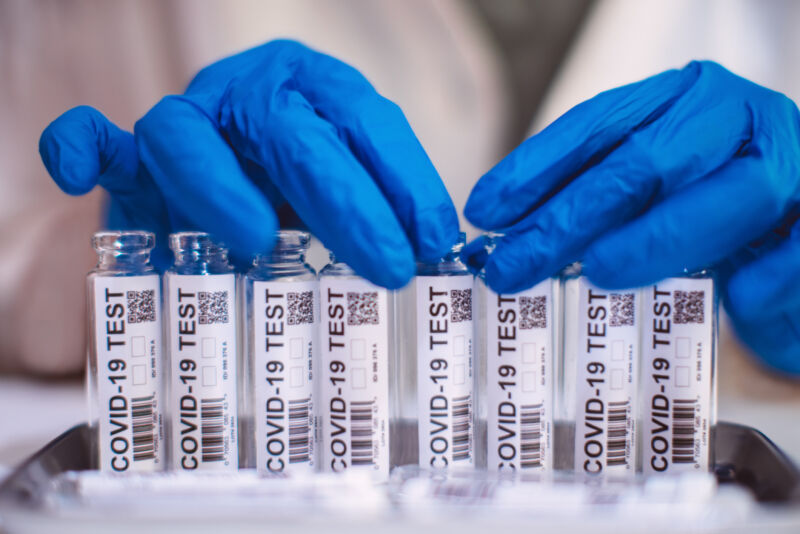This congressperson wants to ramp up COVID-19 testing
Ars Technica » Scientific Method 2020-10-04

Enlarge / Doctor in protection gloves examining & organising test kit for COVID-19 in laboratory. (credit: Tang Ming Tung | Getty Images)
The US's COVID testing failure has unfurled in stages. First, there weren’t close to enough tests, thanks to cascading policy failures and supply chain issues. Once the supply problem gradually came under control, it was replaced by processing backlogs: As cases soared over the summer, many people were having to wait a week or more to get results back. A national survey in August found that only 37 percent of people receiving nasal swab tests were getting results back in the two-day window necessary for effective contract tracing, while nearly a third of tests were taking longer than four days. This delay meant that, as Bill Gates colorfully told WIRED’s Steven Levy in August, “The majority of all US tests are completely garbage.” The root of the problem, Gates said, was that the federal reimbursement rate for the labs that process COVID tests is the same regardless of how long the results take. Change that, he argued, and the labs processing tests “will fix it overnight.”
A new House bill would aim to make Gates’ idea reality. On Thursday, Mikie Sherrill, a freshman congressperson from New Jersey, introduced the SPEEDY Act, which would tie federal reimbursement to test result speeds. (The full name is the “Strictly Pay for Efficient and Expedited Delivery of Your (SPEEDY) COVID-19 Test Act.”) At the outset of the pandemic, the government was paying about $51 per test for people covered by federal health plans. (The average marginal cost of a standard PCR test varies, but at a high-volume lab it runs at about $40.) To encourage labs to increase capacity, the Centers for Medicare and Medicaid Services (CMS) raised that to $100 in April. Under the SPEEDY Act, tests that deliver results in 24 hours would be rewarded with $125; within 48 hours, the current $100 rate would apply; and for results within 72 hours, labs would go back to the pre-April reimbursement. The government wouldn’t pay at all for results that come back after 72 hours. (To avoid having labs just give up on tests after that window closes, the law would require them to still process the tests in order to participate in Medicare.)